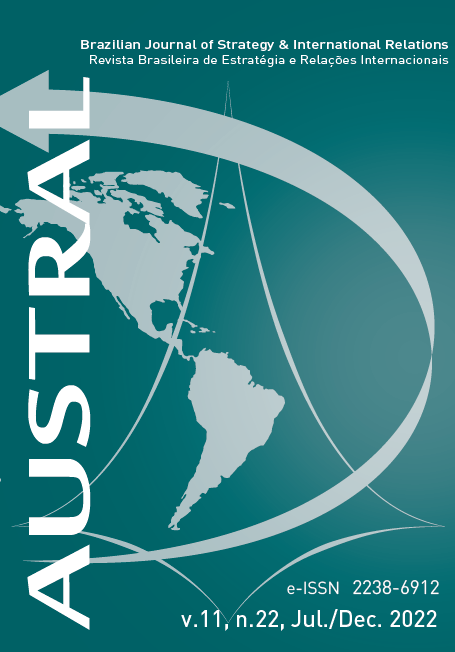POLITICAL ANALYSIS OF THE PURCHASE AND TECHNOLOGY TRANSFER PROCESS FOR GRIPEN FIGHTERS
DOI:
https://doi.org/10.22456/2238-6912.124620Abstract
This article aims to present a descriptive investigation from a qualitative perspective through a bibliographical analysis to discuss the political process of purchase and Technology Transfer (TT) of GRIPEN NG fighters. The research is presented in the form of a Political Analysis (PA) of the political game involving the main actors linked to the Brazilian Defense Industry (BDI) during the governments of Fernando Henrique Cardoso (1995 - 2002), Luiz Inácio Lula da Silva (2003 – 2010) and Dilma Rousseff (2011 – 2016). We resorted to the study of the decision-making process involving interrelationships between the main actors, consensus, interests and values. The study made it possible to identify and analyze the main political actors, how did they act in the political game? For what motivations did they act? The process of purchase and Technology Transfer (TT) was discussed, its advantages and difficulties and how some of the means of communication proceeded, highlighting some characteristics of the international Defense Material (DM) trade that are relevant for a better understanding of the approach raised and some similarities and differences between the FHC, Lula and Dilma governments, given this type of public policy formed during their governments. This work raises another issue, little remembered behind the scenes of the purchase process and TT of the GRIPEN NG fighters, due to the partial view of the media, not pertaining to the economic interests of the US military-industrial complex and often hidden by interests and values of the political environment given the intrinsic characteristics of these actors. This is another aspect that justifies the need to plan and evaluate public policies for the acquisition and TT of DM, primarily aiming at the interests of defense, national sovereignty, and socio-economic development.


